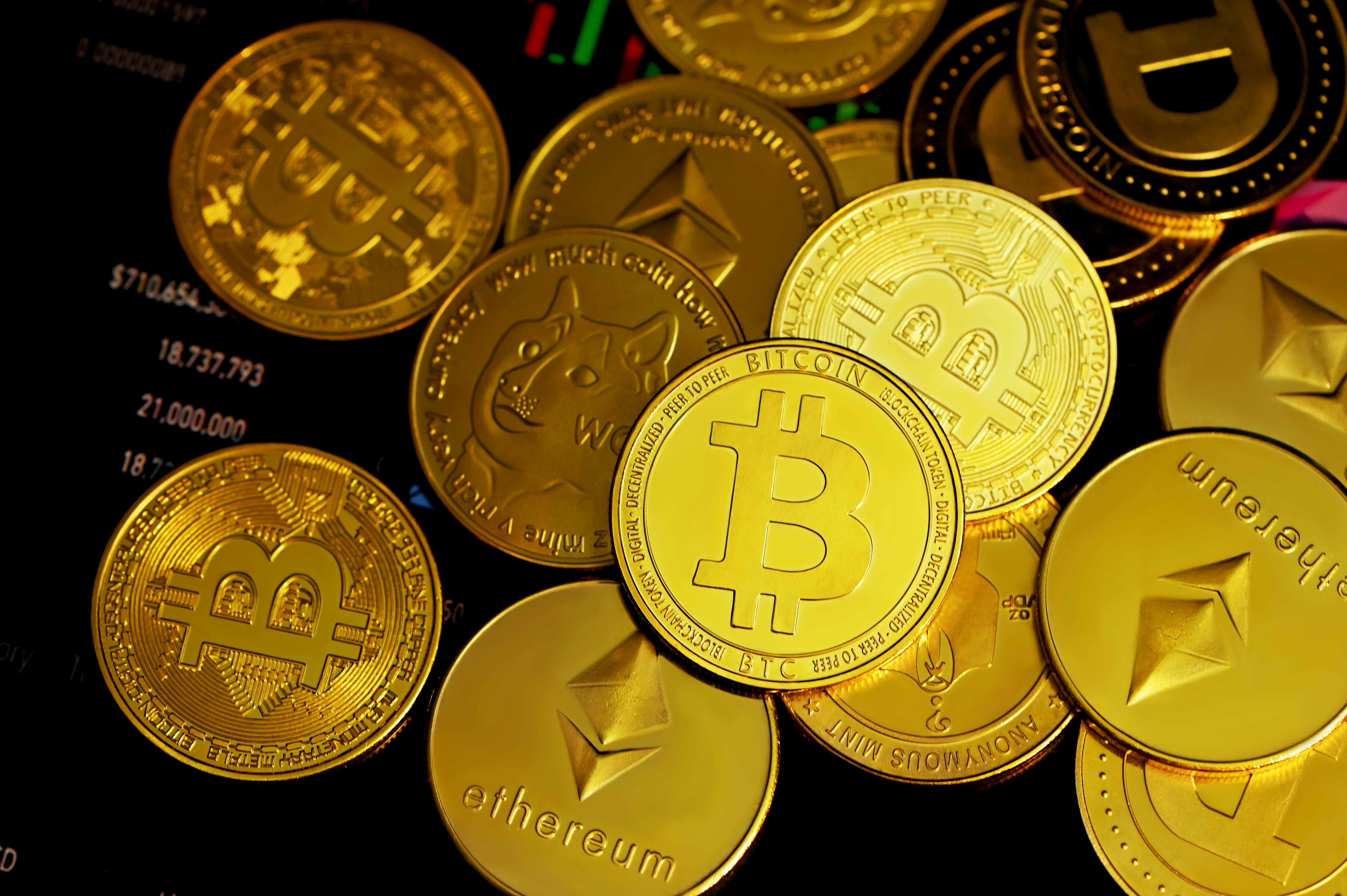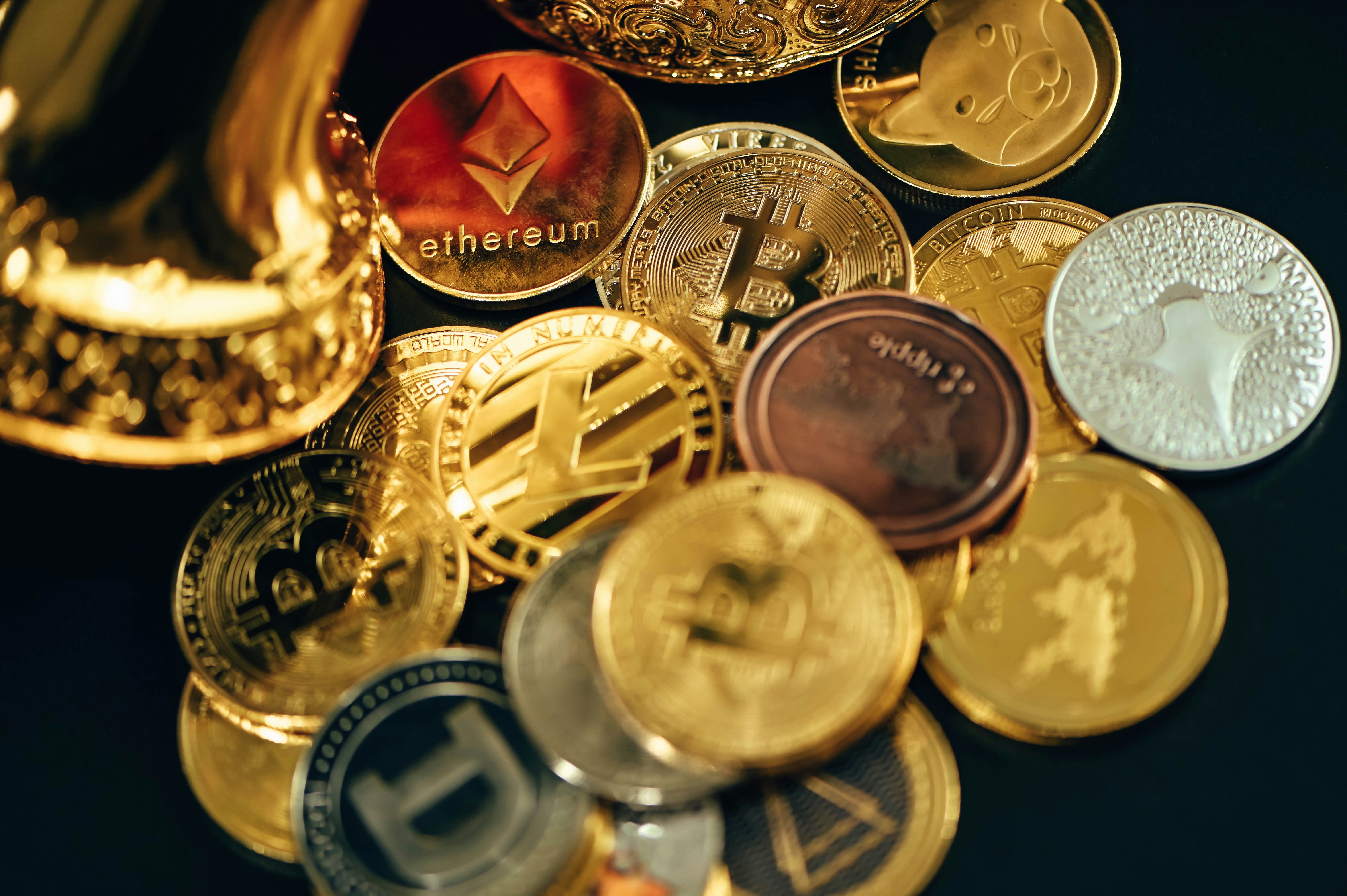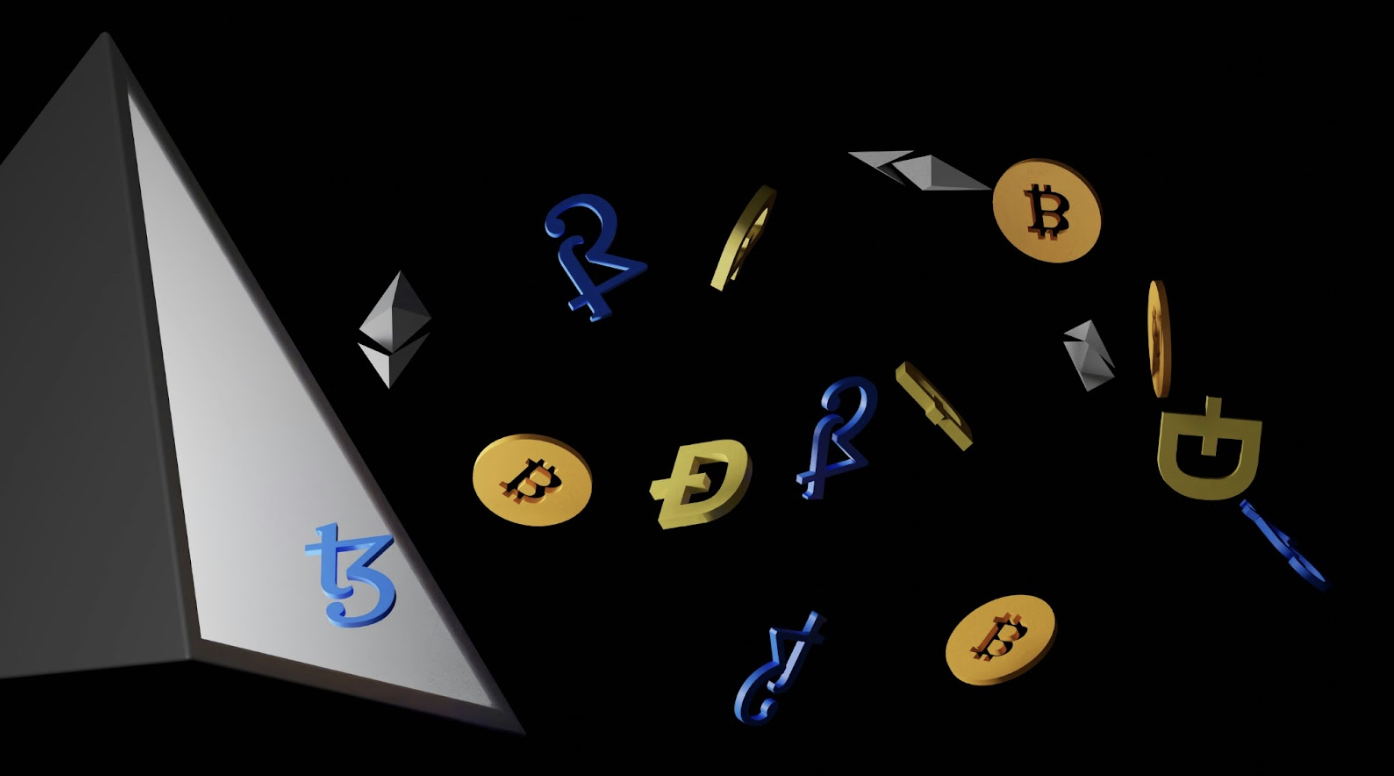What is Cryptocurrency and how is it different from traditional money?

Cryptocurrency is a new form of money created on blockchain technology, a system that records transactions openly, transparently, and securely. Transactions using cryptocurrency can occur directly between users without the need for banks or governments. This differs from fiat currency, which is issued by central banks and regulated by governments.
Many people often confuse cryptocurrency with Central Bank Digital Currency (CBDC). The distinction is clear: CBDC is digital money issued and controlled by a central bank, merely in electronic form instead of physical banknotes or coins. Cryptocurrency, on the other hand, is not controlled by any single authority; it operates through a global blockchain network, allowing users to transfer, send, or store value independently.
The advantages of cryptocurrency include providing fast and independent access to financial systems, while at the same time, it comes with high risk and volatility. Investors and users should clearly understand these characteristics before deciding to use or invest.
What's the difference between crypto and Bitcoin? (Something newbies often get confused about)

Cryptocurrency refers to the collective term for all digital currencies created on blockchain technology. Bitcoin, on the other hand, is one of these cryptocurrencies, being the very first coin and the most well-known in the world. Because of this, many people mistakenly believe that “cryptocurrency” and “Bitcoin” are the same thing.
In reality, Bitcoin is just one of thousands of cryptocurrencies available in the market, such as Ethereum, Tezos, Solana, Cardano, and many more. However, Bitcoin’s prominence as the first cryptocurrency has made it a symbol of the entire crypto world. As a result, the general public may use the term “Bitcoin” interchangeably with “cryptocurrency,” even though the crypto market contains many different coins, each with its own unique uses.
|
Cryptocurrency (คริปโตเคอร์เรนซี) |
Bitcoin (บิทคอยน์) |
|
|
Definition |
Digital currency using blockchain technology, with thousands of different coins |
The first cryptocurrency in the world, created in 2009 |
|
Related Coins |
Thousands of projects, such as ETH, BNB, SOL |
Only one coin: BTC |
|
Purpose |
Used for various purposes, such as finance, Smart Contracts, NFTs |
Focused as digital gold and a store of value |
|
Popularity |
Varies depending on the coin and its use |
The cryptocurrency with the largest market value in the world |
Cryptocurrency vs. traditional investments
Cryptocurrency is becoming an alternative asset class, attracting increasing interest from investors seeking alternatives to traditional investments such as gold, stocks, or real estate.
However, cryptocurrencies are not a replacement for these assets, but rather offer unique characteristics. Understanding the similarities and differences between cryptocurrencies and traditional investments can help investors better plan and manage their risks.
Cryptocurrency vs. Gold
Gold is a centuries-old asset class that has served as a store of value and hedge against inflation. Bitcoin is often referred to as "digital gold" because it is limited in supply and independent of government monetary policy. However, cryptocurrencies are much more volatile than gold, making them suitable for investors with a high risk appetite.
Cryptocurrency vs. Stocks
Stocks reflect the value of a company and grow based on its earnings, while cryptocurrencies grow based on practical applications, technology, and investor confidence. This makes cryptocurrencies much more volatile than stocks, making them suitable for those who are prepared to take on higher risks and understand the digital market.
Cryptocurrency vs. Real Estate
Real estate is an asset class with relatively stable value and long-term returns, but it is less liquid due to trading time. Cryptocurrency can be traded 24/7, providing high liquidity and convenience for short-term investment or trading.
Comparison Table of Cryptocurrency vs. Traditional Investments

|
Cryptocurrency |
Gold |
Stocks |
Real Estate |
Cryptocurrency |
|
Store of Value |
Limited supply (e.g., BTC) but highly volatile |
Stable store of value |
Tied to company performance |
Store of Value |
|
Growth Potential |
Very high but high risk |
Limited by supply and demand |
Depends on business and economy |
Growth Potential |
|
Volatility |
Very high |
Low |
Medium |
Volatility |
|
Liquidity |
Tradable 24/7 |
Easily traded in global markets |
Traded on stock exchanges |
Liquidity |
|
Accessibility |
Easy via exchanges |
Easy via gold shops/ETFs |
Through brokers |
Accessibility |
From the table, when comparing cryptocurrency with traditional investments such as gold, stocks, and real estate, clear differences emerge in terms of opportunities, returns, and risks.
Cryptocurrency offers high flexibility and can be traded 24/7, independent of market hours or specific countries. It is suitable for investors seeking access to new digital assets and rapid growth opportunities, but this comes with very high volatility.
Gold has lower volatility compared to crypto, but its drawbacks include lower liquidity and less convenient trading. Stocks grow according to company performance, with moderate volatility. Trading is relatively convenient but limited by market hours and requires monitoring of economic data.
Real estate is the most stable asset among these options, but its limitations include low liquidity, high capital requirements, and long transaction times.
Investing in crypto often comes with specific terms that beginners may not be familiar with. Understanding these terms will help you follow news and make investment decisions more easily.
-
Cryptocurrency (คริปโตเคอร์เรนซี)
Digital currencies created on a blockchain, used for transferring or storing value without relying on a central bank. -
Blockchain (บล็อกเชน)
The technology behind crypto, like a large online ledger that records transactions transparently and is verifiable. -
Bitcoin (BTC)
The first cryptocurrency in the world, created in 2009, often called digital gold because it is limited to 21 million coins. -
Altcoin (ออลท์คอยน์)
A term used for any cryptocurrency other than Bitcoin, such as Ethereum (ETH), Solana (SOL), Ripple (XRP). -
Stablecoin (สเตเบิลคอยน์)
Crypto whose value does not fluctuate because it is pegged to real assets like the US dollar (USDT, USDC), suitable for spending or transferring money. -
Exchange (กระดานซื้อขาย)
Platforms for buying, selling, or trading crypto, such as KuCoin Thailand, Binance, Bitkub. -
Wallet (กระเป๋าเงินดิจิทัล)
Tools to store crypto, including Hot Wallets (online, easy to use) and Cold Wallets (offline, highly secure). -
Mining (การขุดคริปโต)
The process of using computers to verify transactions on a blockchain and receive crypto coins as a reward; used with coins like Bitcoin. -
Smart Contract (สัญญาอัจฉริยะ)
Automated programs on the blockchain. If transaction conditions are met, the system executes automatically. -
DeFi (Decentralized Finance)
Finance without intermediaries, allowing lending, depositing, or trading directly on the blockchain through Smart Contracts. -
NFT (Non-Fungible Token)
Unique digital tokens representing specific assets, such as artwork, music, concert tickets, or in-game items. -
Gas Fee (ค่าธรรมเนียม)
Fees required when making transactions on the blockchain, such as transferring coins or using Smart Contracts. Think of it as a toll to have your transaction recorded in the system. -
Proof of Work (PoW)
Transaction verification method using competitive computer processing, like Bitcoin mining. Very secure but energy-intensive. -
Proof of Stake (PoS)
Transaction verification method by staking coins as collateral instead of mining, more energy-efficient than PoW, e.g., Ethereum’s new version.
Types of Cryptocurrency You Should Know

When it comes to Cryptocurrency, many people may think only of Bitcoin or Ethereum. In reality, the crypto world consists of many types of digital coins and tokens, each designed to serve different functions and use cases.
Understanding these types of crypto helps in accurately assessing the value, utility, and potential of each coin.
1. Coins
Coins are digital currencies that have their own blockchain, allowing them to be used directly for transactions or even for purchasing certain goods and services. Coins function like digital money that users can send to one another without relying on central banks or financial institutions. Additionally, coins are a core component of the network’s security system.
Examples:
-
Bitcoin (BTC)
-
Ethereum (ETH)
-
Tezos (XTZ)
2. Tokens
Tokens are digital currencies that differ from coins in that they do not have their own blockchain but are created on top of another coin’s network, essentially “renting” a platform to build their own system. This allows tokens to be used for various purposes, such as in-game purchases or investments in DeFi projects.
Since tokens rely on another network, their speed and transaction fees depend on that network. The advantage is that creating tokens is easier because developers do not need to build a blockchain from scratch, allowing new projects to test ideas quickly and cost-effectively.
Examples:
-
Uniswap (UNI): Token of the decentralized exchange platform Uniswap, built on Ethereum
-
AXS (Axie Infinity Shard): Token of the game Axie Infinity, built on Ethereum
3. Stablecoins
Stablecoins are cryptocurrencies designed to maintain a value close to real-world currencies, such as the US dollar. These coins have relatively stable prices and do not fluctuate like other types of crypto, making them convenient for storing value and for spending.
Examples:
- USDT, USDC: Pegged to USD
- DAI: Decentralized stablecoin
4. Utility Tokens
Utility tokens are created to be used within a specific system or platform, such as paying for services, reducing fees, or unlocking special features. These tokens are not designed to store value like regular digital currencies but are intended for practical use within that ecosystem.
-
Examples:
BNB: Used to reduce fees on the Binance Exchange
LINK: Used within the Chainlink network
5. Security Tokens
Security tokens represent ownership rights in assets such as stocks, funds, or real estate. They resemble traditional investments but are issued and managed on the blockchain.
Examples:
-
tZERO (TZROP): Represents ownership or profit rights in the company tZERO
-
RealT: Represents ownership of real estate properties in the United States, with token holders receiving rental income proportional to their holdings
6. Governance Tokens
Governance tokens are digital tokens that grant holders the right to participate in decision-making regarding the direction and policies of a blockchain project or platform. Holders can vote on matters such as fee adjustments, adding new features, or asset management, enabling the project to develop in a decentralized and transparent manner without relying solely on the core team.
-
MKR (Maker)
-
COMP (Compound)
7. NFTs (Non-Fungible Tokens)
Non-Fungible Tokens are digital tokens that are unique and cannot be exchanged on a one-to-one basis like regular cryptocurrencies (e.g., Bitcoin or Ethereum). Each NFT contains distinct information that allows verification of ownership of a specific asset. NFTs represent unique assets such as artwork, music, in-game items, or virtual land in the Metaverse.
-
CryptoPunks
-
Bored Ape Yacht Club
Advantages and Disadvantages of Cryptocurrency
Cryptocurrency offers fast, transparent transactions without relying on intermediaries. At the same time, it has limitations and risks that investors should be aware of.
Comparison table of Cryptocurrency advantages and disadvantages
|
Feature |
Advantages |
Disadvantages |
|
Transactions |
Fast transfers, low fees (on some networks) |
If the network is congested, fees may rise and transactions can be delayed |
|
Transparency |
All transactions are recorded on the blockchain and verifiable |
Data is publicly visible, reducing privacy |
|
Accessibility |
No bank account needed, usable worldwide |
Still complex for beginners |
|
Investment Opportunities |
High potential profit from project growth |
High volatility, potential for losses |
|
Decentralization |
Not dependent on governments or central institutions |
Risk of being restricted or banned in some countries |
|
Innovation |
Used in DeFi, NFT, Metaverse, and Web3 |
Many projects are new and carry risk of failure |
How to play Crypto? How to get started for beginners
Investing in crypto opens the opportunity to access digital assets easily, execute transactions quickly, and choose from a wide variety of coins. However, for beginners, it is important to understand the basics, such as how to trade, how to store coins securely, and how to assess the risks of each coin.
One convenient and safe way to start is by using a reputable crypto exchange platform, such as KuCoin Thailand, which supports both beginners and professional investors. This allows users to open an account, trade coins, and manage their crypto wallet all in one place.
Getting started on KuCoin Thailand can be done easily in 4 main steps:
-
Sign up for a KuCoin Thailand account: Register with your email or phone number and complete identity verification (KYC) for security.
-
Deposit funds into your account: Add funds using cryptocurrencies or transfer Thai Baht through the supported channels.
-
Choose the coins you are interested in: For example, Bitcoin, Ethereum, XRP, TRX, or other coins of your choice.
-
Start trading and manage your wallet: Buy coins, transfer them to storage, or use them for other transactions as needed.
Latest Cryptocurrency Update (2025)
Bitcoin (BTC) rebounds amid expectations of Fed rate cuts
Bitcoin (BTC) rose 0.8% to around $112,140 following weak U.S. employment data, leading investors to anticipate a Federal Reserve rate cut, which makes risk assets like crypto more attractive.
Source: https://coincentral.com/bitcoin-price-prediction-why-btc-could-top-150000-in-september
Ethereum (ETH) maintains upward trend with $5,800 target
Ethereum (ETH) continues to gain momentum from institutional investment and protocol upgrades. ETH is currently trading at around $4,364 and is expected to surge toward $5,800 by the end of 2025.
Source: https://www.indiatimes.com/partner/ethereum-price-prediction-eth-shows-strength-targeting-5800-dollars-as-little-pepe-lilpepe-steadily-gains-traction-669431.html
TRON (TRX) receives new investment from Bravemorning
TRON’s price rose following a new investment from Bravemorning, signaling positive prospects for future projects.
Source: https://www.morningstar.com/news/dow-jones/202509086108/tron-shares-rise-after-new-investment-from-bravemorning
Real-world uses of cryptocurrency

The real-world use of crypto is diverse and increasingly plays a role in finance, investment, and digital technology. The main uses can be divided as follows:
1. Payment and money transfer
Crypto can be used to pay for goods and services, as well as for fast cross-border transfers with lower fees compared to traditional banks (Currently, Thailand does not allow the use of cryptocurrencies as a means of payment for goods and services.). This makes it suitable for online businesses and people who want to send money internationally without intermediaries.
2. Investment and speculation
Crypto can be used for investing or speculation. Investors may hold coins long-term or stake them to earn returns similar to interest (Currently, Thailand does not permit the staking of cryptocurrencies.). They can also trade on platforms like KuCoin Thailand to profit in both short-term and long-term strategies.
3. DeFi (Decentralized Finance)
A decentralized financial system that allows users to lend, deposit, exchange, or perform transactions directly on the blockchain without going through banks or central financial institutions. Crypto coins serve as the primary currency for transactions within the system, making it more convenient, fast, and transparent.
4. NFT and GameFi
Crypto acts as a medium for NFT transactions, including minting, buying, selling in-game items, or participating in various activities. Crypto coins function like digital money within these systems and marketplaces.
Risks and things to know before investing in crypto
Before stepping into crypto investing, investors should understand that while crypto offers the potential for high returns, it also carries risks that differ from traditional investments. Understanding these points can help reduce the chance of losses.
1. Price volatility
Price volatility is a major challenge in crypto investing, as prices can rise or fall sharply within a few hours. This can be caused by multiple factors such as economic news, coin popularity trends, or movements from large investors.
2. Laws and regulations
Crypto is still considered a new asset in many countries, so related laws are constantly changing. For example, regulations may require trading crypto only through exchanges licensed by authorities, or impose taxes on investment gains. These changes can directly affect the usability and value of coins, so investors should stay updated.
3. Risks from trading platforms
Keeping coins on an exchange is convenient but comes with risks such as hacks, system outages, or sudden platform closures. If these events occur, invested funds may be lost. Choosing reputable and regulated exchanges and transferring coins to a personal digital wallet (Wallet) can help reduce risks.
4. Scams and fake projects
The crypto market is open, allowing anyone to create new coins or projects. This creates a mix of real and fake projects, often using persuasive tactics to make investors act quickly. Without thorough research, investors may easily fall victim to scams or rug pulls.
5. Technology and security risks
Although blockchain is highly secure, there are other risks such as hacking, unsafe storage of private keys, or vulnerabilities in smart contracts. Learning protective measures, such as using a Cold Wallet and enabling two-factor authentication (2FA), is very important.
It is clear that crypto offers high opportunities but also carries high risks. The key is to study, understand, and develop a strategy before investing.
Cryptocurrency and the future of global finance
In 2025, cryptocurrencies have emerged as one of the key drivers of the global financial system, following recognition from major financial institutions, technology companies, and governments in several countries.
These developments have shifted the perception of crypto from being merely speculative assets to becoming a new infrastructure for global finance.
Financial Institutions Acceptance and Development
Financial institutions around the world are increasingly focusing on digital currencies, particularly Bitcoin, which is viewed as a long-term store of value.
According to a report from Cointelegraph, in 2025, many financial institutions began offering services related to Bitcoin and stablecoins, with rapid expansion expected in the second half of the year.
Furthermore, advancements in blockchain technology have made financial transactions faster and more secure. The report highlights that using stablecoins for cross-border transfers significantly reduces both fees and transaction times.
At the same time, the introduction of new financial services, such as Decentralized Finance (DeFi) and Bitcoin-based DeFi, allows users to access financial services without relying on traditional financial institutions. Cointelegraph also notes that Bitcoin-based DeFi has been gaining increased attention in 2025.
Challenges and risks
Although the use of digital currencies has been growing rapidly, there are still challenges and risks to consider, such as price volatility, lack of clear regulation, and cybersecurity threats.
A report from the Bank of Italy highlights that the volatility of digital currencies and their connections to the traditional financial system may affect financial stability. For example, trading on exchanges or using digital currencies as financial collateral could, in the event of extreme volatility, destabilize traditional financial markets and potentially impact the broader economy.
In 2025, the use of digital currencies is playing a key role in transforming the global financial system, supported by acceptance from financial institutions, advancements in blockchain technology, and the introduction of new financial services.
However, investors should carefully assess the risks and understand digital currencies thoroughly before investing.
FAQ Frequently Asked Questions about Cryptocurrency
1. What is crypto? How do you play it?
Cryptocurrency is a digital currency that uses blockchain technology, enabling secure, transparent transfers and storage of value without relying on banks or central authorities.
There are many ways to invest in crypto, including trading on exchanges for speculation, holding coins long-term, staking for returns, or mining, depending on the type of coin and supported methods.
2. How many types of cryptocurrency are there?
There are 3 main types of Cryptocurrencies:
-
Currency Coins: Cryptocurrencies with their own blockchains, used for transfers or fees on the network.
-
Tokens: Cryptocurrencies built on another coin's blockchain, used in various platforms or apps.
-
Stablecoins: Cryptocurrencies with a fixed value, pegged to a real currency, such as the dollar, reducing volatility.
3. What are the pros and cons of crypto?
Advantages of Cryptocurrency:
-
Fast global transfers
-
Lower fees compared to traditional banking systems
-
Investment opportunities with potentially high returns
-
Access to DeFi and NFT services
Disadvantages of Cryptocurrency:
-
High price volatility, making investment value uncertain
-
Risk of hacking or loss if stored in insecure digital wallets
-
Laws and regulations are still unclear in many countries
-
Some coins have liquidity risks; may not be sellable immediately or could drop in price quickly
4. What is the difference between crypto and Bitcoin?
-
Bitcoin is the first digital currency and is often called “digital gold” because it has a limited supply and can be used to store value.
-
Cryptocurrency is a collective term for all digital coins, including Bitcoin.
In summary: Bitcoin is part of the crypto universe, but crypto is not limited to Bitcoin.
Here’s easy start guide for beginners:
-
Register an account on a trusted exchange platform like Kucoin Thailand
-
Verify your identity (KYC)
-
Deposit funds and select your desired coins
-
Buy/sell and learn how to store your coins using a hot or cold wallet
6. 1 Crypto is equal to how many Thai baht?
The price of each cryptocurrency varies and fluctuates constantly. Conversion to Thai baht is based on the current market exchange rate.
Check real-time crypto prices easily on KuCoin Thailand. See the latest updates and instantly calculate your crypto's value in Thai baht.
Conclusion: What is Cryptocurrency?
Cryptocurrency is a digital currency built on blockchain technology, allowing users to transfer funds and store value without relying on traditional banks or central authorities. This system enables fast, secure transactions with low fees and is accessible from anywhere in the world, making crypto an increasingly attractive digital asset for investors and users alike.
For beginners, crypto offers an easy and convenient entry point. Investors should start by understanding the basics of each coin, how to trade, and how to safely store digital assets to ensure secure investment.
Start trading crypto safely on KuCoin Thailand, a leading exchange platform. Register today to open an account and manage your crypto wallet easily, confidently stepping into the world of cryptocurrency.
⚠️ Disclaimer: Cryptocurrency and digital token involve high risks; investors may lose all investment money and should study information carefully and make investments according to their own risk profile.
KuCoin Thailand
(Operated by ERX Company Limited)
Email: happy@kucoin.th
- Website: www.kucoin.th
- Facebook: facebook.com/KuCoinThailand
- Facebook Community Group: facebook.com/groups/kucointhailandcommunity
- LINE Official Account: @KuCoinThailand
- Instagram: Kucointhailand
- X (formerly Twitter): x.com/KuCoinThailand
- Telegram: @KuCoinTH_Official
📲 Download the KuCoin Thailand app today!
👉 Click here to download Available now on both the Thailand App Store and Play Store.

